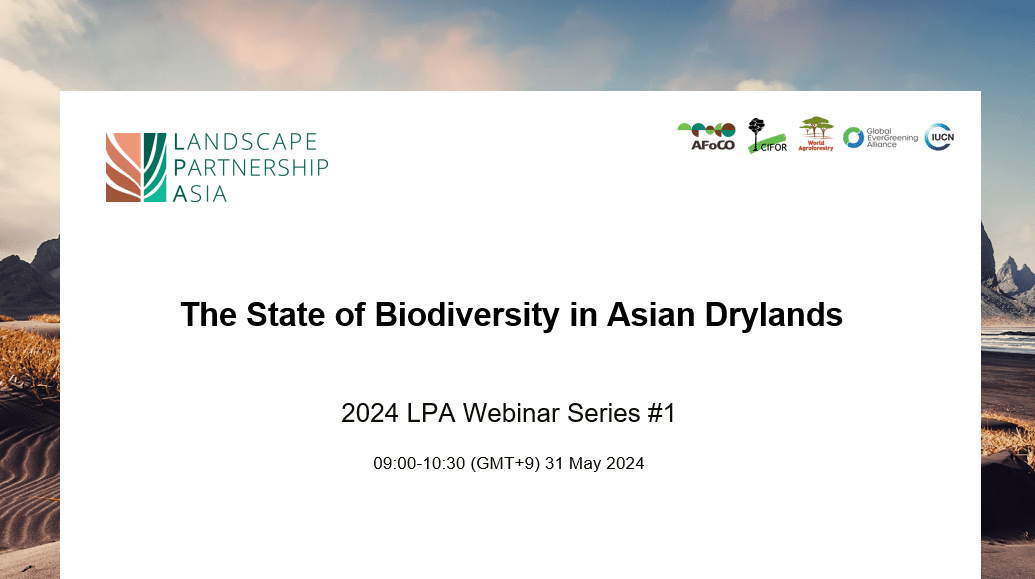
May 31, 2024 — The pressing issue of land degradation and its impact on biodiversity took center stage at the inaugural Landscape Partnership Asia (LPA) webinar series on May 31, 2024. Held in celebration of the International Day of Biological Diversity, the webinar brought together experts and stakeholders to discuss the critical state of Asian drylands and explore pathways for restoration. Dr. Delia Catacutan from CIFOR-ICRAF served as the primary moderator for the webinar, guiding the discussion and facilitating a lively exchange of ideas among the participants.
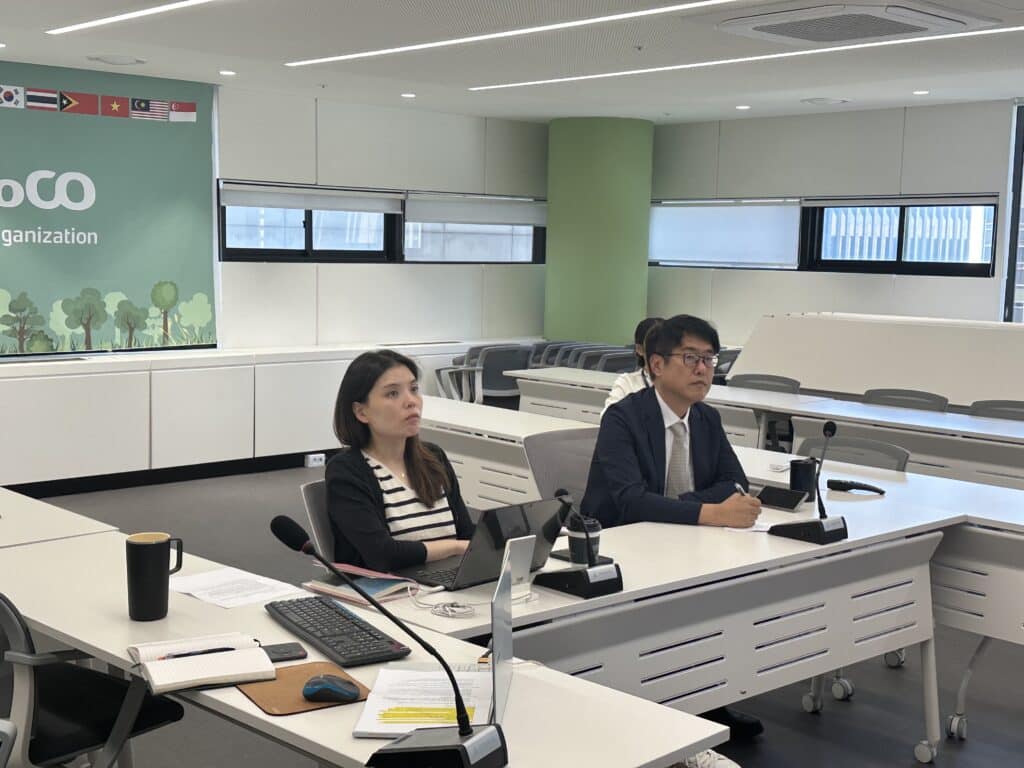
Mr. Sunpil Jin, from the Asian Forest Cooperation Organization (AFoCO), kicked off the event with a warm welcome to all participants. He highlighted the importance of collaborative efforts in addressing the challenges of land degradation and promoting biodiversity conservation, setting the tone for the insightful discussions to follow.
Dr. Kikang Bae from AFoCO, highlighted the expertise and experience of each speaker, further setting the stage for the engaging presentations that followed.
Speaker 1) Dr. Muralee Thummarukudy
Director, G20 Global Land Initiative
Dr. Muralee Thummarukudy, Director of the G20 Global Land Initiative, highlighted the urgent need for land restoration. He painted a stark picture of a world where 72% of land is directly used by humans, leading to widespread degradation, with 25% of agricultural land and 20-30% of forests suffering from this phenomenon. He emphasized the crucial role land plays in human well-being and biodiversity conservation, but cautioned that despite international commitments, land restoration is lagging due to insufficient national legislation, unclear land tenure, lack of funding, and a shortage of technical expertise.
Dr. Thummarukudy then presented the G20 Global Land Initiative’s comprehensive approach to tackling these challenges. He highlighted their efforts to work directly with parliamentarians to promote legislation, engage the private sector to create a restoration industry, and develop training programs for professionals and youth in sustainable land management practices. His vision of a “restoration industry,” where private sector actors invest in and profit from land restoration activities, sparked interest among participants.
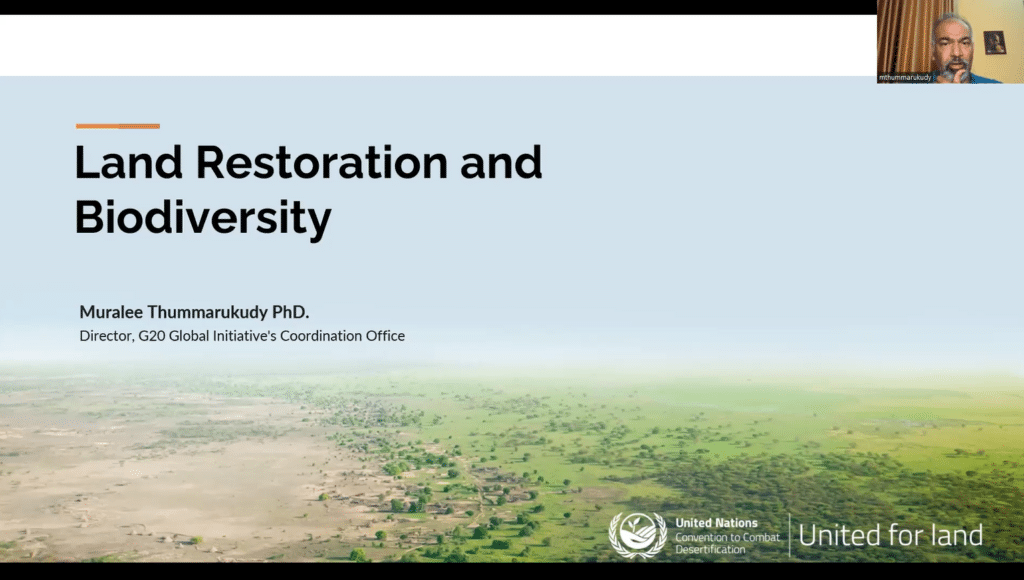
Speaker 2) Mr. Eko Sutrisno
Functional Staff, Office for Standard Implementation of Environment and Forestry Instruments, Kuok, Agency for Standardization of Environment and Forestry Instruments, Ministry of Environment and Forestry, Indonesia
Mr. Eko Sutrisno, from the Office for Standard Implementation of Environment and Forestry Instruments, Kuok, Agency for Standardization of Environment and Forestry Instruments (Badan Standardisasi Instrumen Lingkungan Hidup dan Kehutanan (BSILHK)), Ministry of Environment and Forestry of Indonesia, provided a ground-level perspective with a presentation on the savanna ecosystems of Baluran National Park, Indonesia. He showcased the unique biodiversity of this dryland area and the threats that invasive species such as the Acacia nilotica pose on native biodiversity. He also described the ongoing efforts to mitigate the spread of this invasive species through chemical, mechanical, and ecological management approaches.
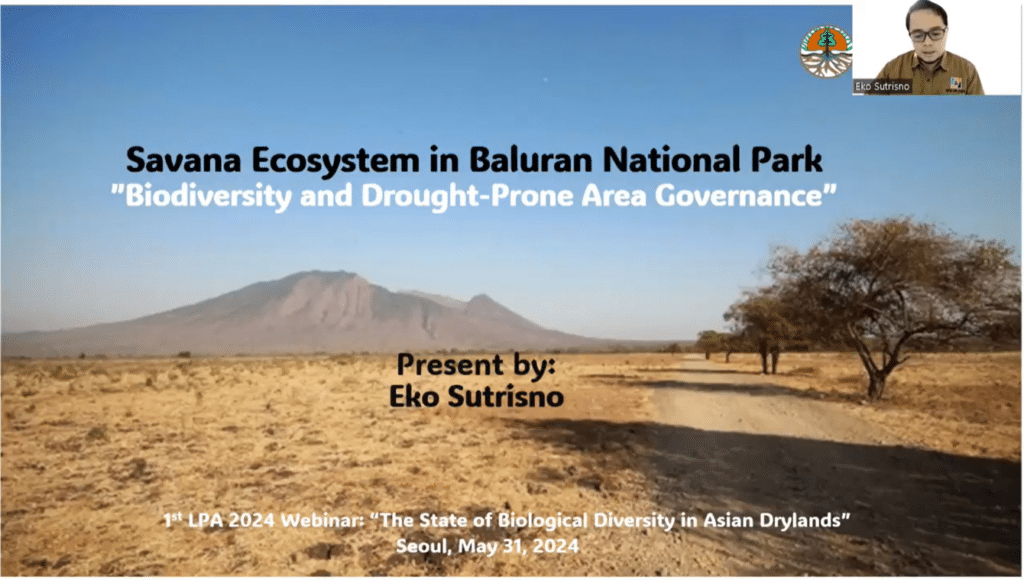
The webinar’s lively Q&A session delved deeper into various aspects of land restoration, including stakeholder engagement, financing, and the G20 Global Land Initiative’s role in supporting national efforts. Dr. Thummarukudy challenged the common perception that funding is the main barrier to land restoration, emphasizing the need for a strategic approach that identifies areas suitable for restoration where private sector investment can be leveraged. He also highlighted the potential of “nature labs,” where school campuses become spaces for students to learn about biodiversity and engage in conservation efforts, creating a generation passionate about land restoration.
Dr. Satrio Wicaksono from IUCN provided a synthesis, emphasizing the importance of collaborative efforts to tackle land degradation and promote restoration. He also announced the next LPA webinar series, focusing on nature-based solutions for drought, building upon an upcoming IUCN publication on the topic.
The LPA webinar served as a critical platform for sharing information and fostering collaboration on the crucial issue of land restoration and biodiversity conservation in Asian drylands. It highlighted the need for a multifaceted approach to address this pressing challenge and secure a more sustainable future for these vital ecosystems.
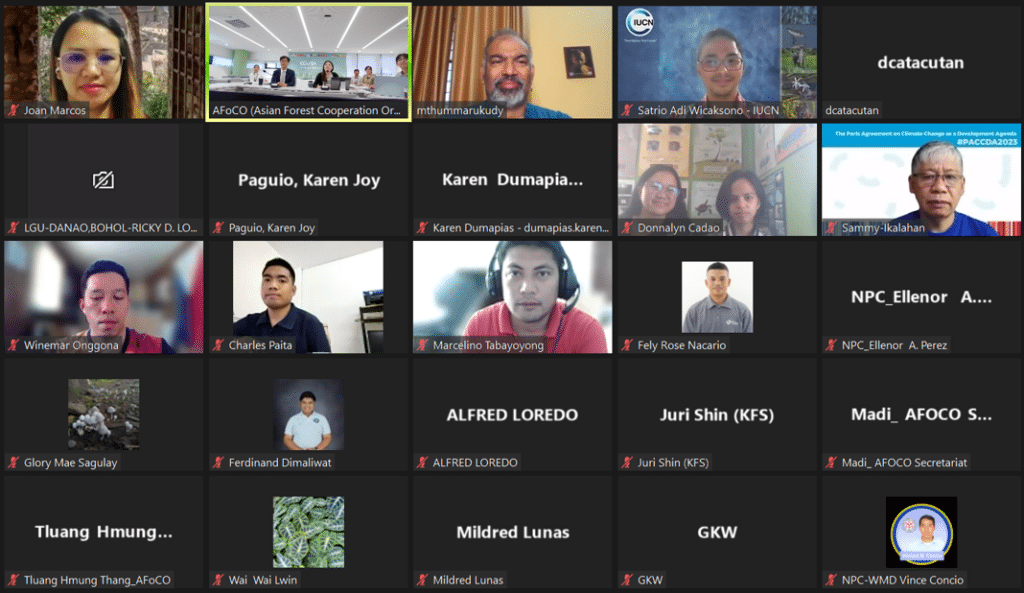
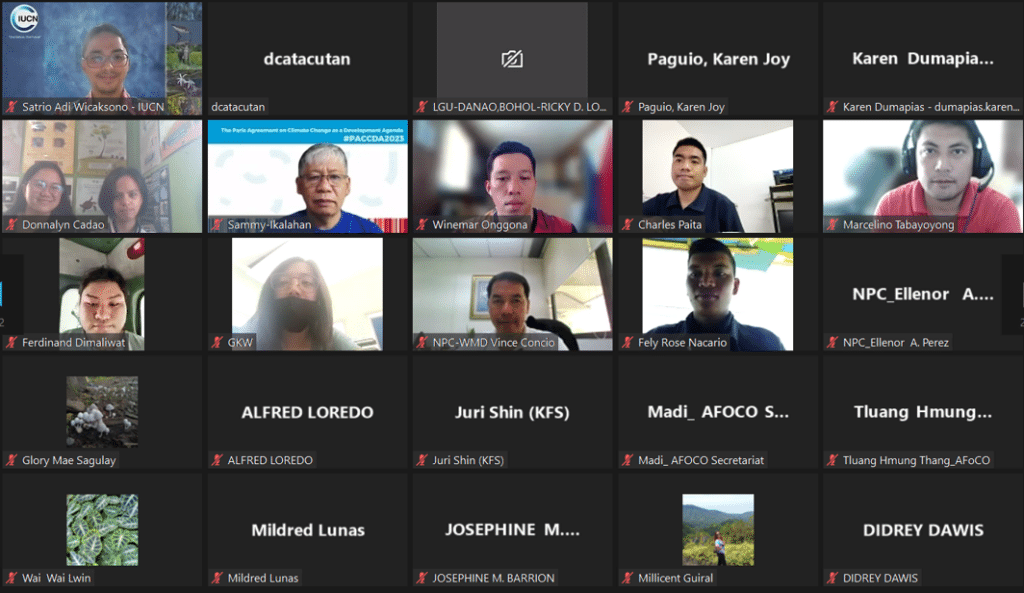
Group photo of participants

